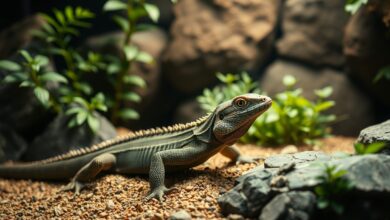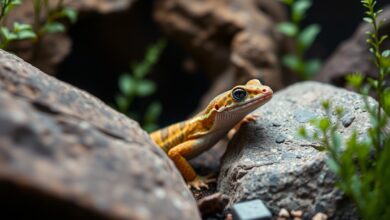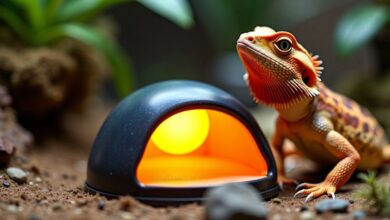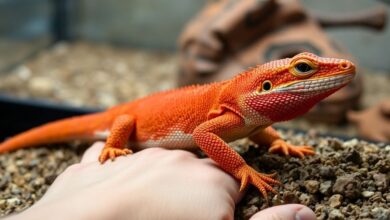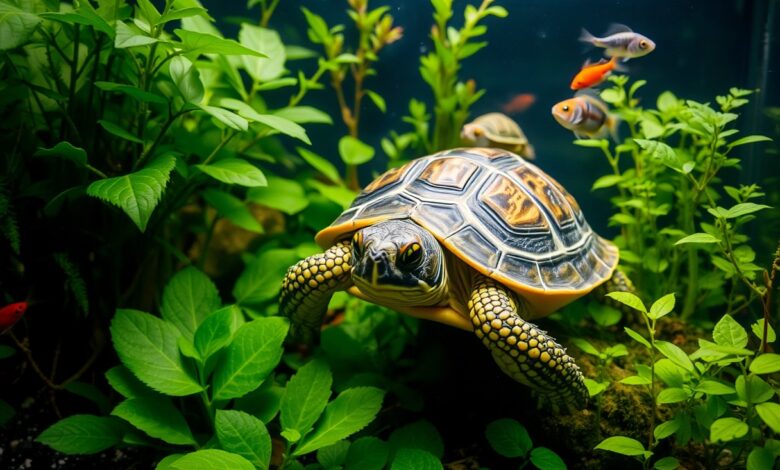
It’s important to understand the dietary needs of your Common Musk Turtle to ensure it thrives in your care. These turtles are primarily omnivorous, meaning they enjoy a varied diet consisting of both plant and animal matter. You should offer high-quality turtle pellets, fresh greens, and occasional protein sources like insects or cooked fish. Avoid feeding them harmful foods, such as processed human foods, which can lead to serious health issues. By providing a balanced diet tailored to your turtle’s needs, you can help promote a long and healthy life.

Key Takeaways:
- Diverse Diet: Common Musk Turtles thrive on a variety of foods including insects, aquatic plants, and small fish to meet their nutritional needs.
- Protein Sources: Incorporate high-protein options such as earthworms and commercial turtle pellets to support their growth and health.
- Calcium Intake: Provide calcium-rich foods like cuttlefish bone or crushed eggshells to promote strong shell development.
Natural Diet of Common Musk Turtles
For common musk turtles, their natural diet is composed primarily of small aquatic organisms found in freshwater habitats. This includes a combination of invertebrates, plant material, and occasionally small fish. Understanding their natural dietary preferences helps you provide a balanced diet that mimics their wild food sources, ensuring their health and longevity in captivity.
Aquatic Invertebrates
After obtaining information from studies, you will find that common musk turtles primarily feed on a variety of aquatic invertebrates. These include insects, larvae, worms, and crustaceans. Incorporating these protein-rich foods into your turtle’s diet is necessary for promoting growth and maintaining overall health.
Plant Material
Natural growth in a musk turtle’s habitat also includes various plant materials. You should offer them leafy greens and aquatic plants to enrich their diet.
In fact, enriching your common musk turtle’s diet with leafy greens, such as kale or romaine lettuce, and aquatic plants like duckweed or water lettuce, can significantly enhance their nutrition. These plant materials provide necessary vitamins and minerals while adding variety to their meals. However, be cautious and avoid toxic plants that can harm your turtle’s health. By providing balanced plant material alongside their protein sources, you promote a healthier and happier turtle.
Captive Diet Considerations
It is vital for you to provide a balanced diet to your common musk turtle while in captivity. Ensuring they receive a mix of protein, greens, and vital nutrients will keep them healthy and thriving. For further insights on What Do Turtles Eat?, consider researching reputable sources to fine-tune your turtle’s dietary needs.
Commercial Turtle Pellets
Beside fresh foods, commercial turtle pellets can be an excellent base for your turtle’s diet. Look for high-quality brands specifically formulated for aquatic turtles to ensure they receive the necessary vitamins and minerals.
Fresh Fruits and Vegetables
On the other hand, incorporating fresh fruits and vegetables into your turtle’s diet adds variety and vital nutrients. Common choices include leafy greens, squash, and berries.
With fresh fruits and vegetables, you should focus on offering a mix that contains vitamins A, C, and K while avoiding toxic options like *avocado* and *rhubarb*. Always wash produce thoroughly and cut them into small, manageable pieces to prevent choking. Giving your common musk turtle a range of textures and flavors not only enhances their meal excitement but also contributes to their overall health.
Feeding Frequency and Portion Sizes
After determining the right foods for your Common Musk Turtle’s diet, it’s important to establish a proper feeding schedule. Generally, you should feed your turtle every other day, offering an amount that fits comfortably within its shell size. For more details, check out the Common Musk Turtle (Stinkpot): Species Profile. This routine will help maintain a healthy weight and prevent dietary issues.
Juvenile vs. Adult Turtles
Turtles have different dietary needs depending on their age. Juvenile turtles require more frequent meals and higher protein content to support their growth, while adult Common Musk Turtles can thrive on a less frequent feeding schedule. Tailoring their diet based on their life stage will ensure they receive the nutrients they need to thrive.
Overfeeding Risks
Sizes and portions are key when feeding your turtle, as overfeeding can lead to serious health issues. Excessive food intake may result in obesity, which can strain their organs and shorten their lifespan. Additionally, overfeeding can lead to a buildup of waste that may impact tank cleanliness and water quality, creating an unhealthy environment. Monitoring your turtle’s intake is imperative for its overall well-being.
For instance, being attentive to portions is vital; even small turtles can be prone to overindulgence. You should stick to guidelines and adjust portions based on individual growth and activity levels. Providing adequate exercise and a balanced diet will promote better health outcomes for your Common Musk Turtle.
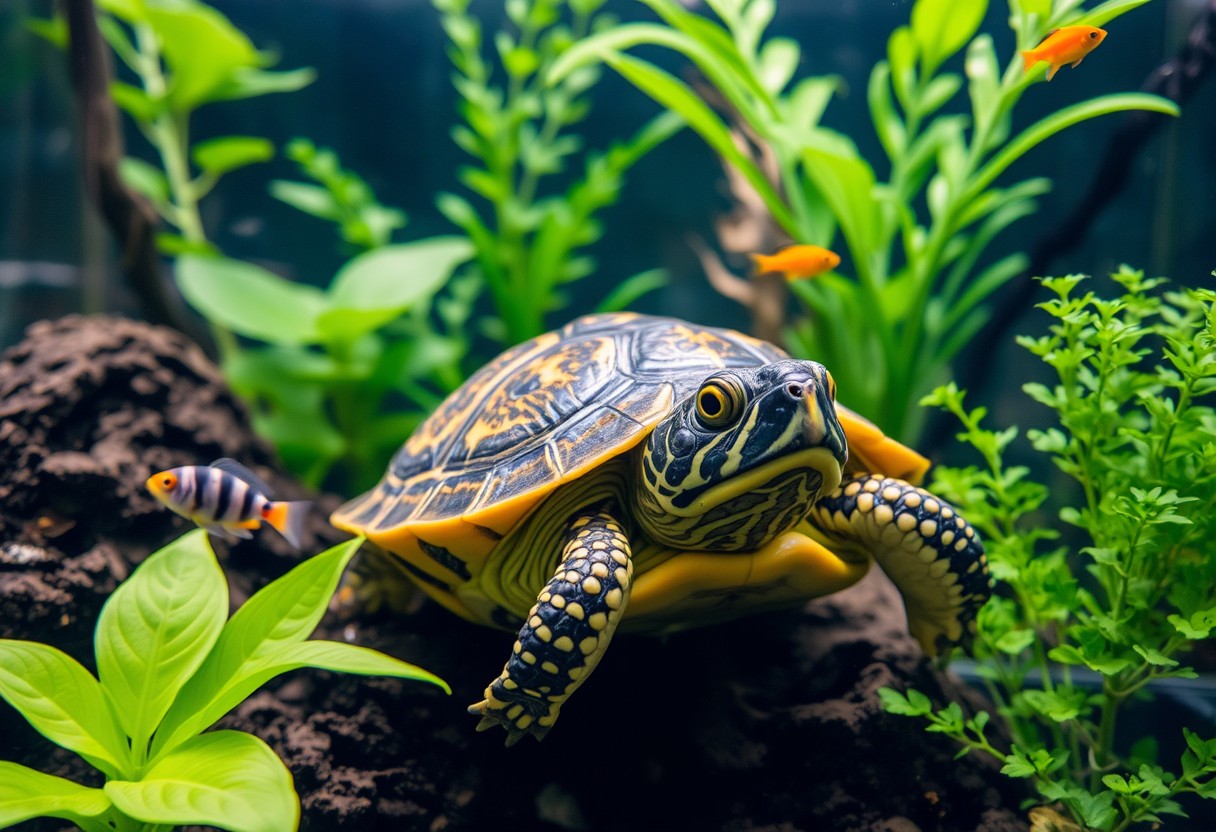
Nutritional Supplementation
Your common musk turtle thrives with a balanced diet, but nutritional supplementation is vital to ensure they receive all necessary nutrients. Adding vitamins and minerals to their food can help prevent deficiencies, supporting their overall health and longevity. Regularly incorporating supplements can also improve their shell condition and enhance their immune system. However, always consult with a veterinarian knowledgeable about reptiles to determine the right supplementation specific to your turtle’s needs.
Calcium and Vitamin D3
Below, it’s vital to provide calcium and Vitamin D3 as part of your musk turtle’s dietary regimen. Calcium supports their bone health and shell integrity, while Vitamin D3 allows for better calcium absorption. Implementing a calcium powder or specialized reptile supplement can be beneficial, especially if your turtle’s primary diet lacks these nutrients.
Importance of Variety
Around providing a diverse diet is vital for your musk turtle’s health. Feeding them a variety of foods ensures they receive a wide range of nutrients, reducing the risk of deficiency. Different fruits, vegetables, and protein sources contribute to a well-rounded diet, promoting better metabolism and overall wellness.
Indeed, the importance of variety cannot be overstated when it comes to your common musk turtle’s diet. A monotonous feeding plan can lead to serious health issues, including nutritional deficiencies that may affect their growth and immune system. By offering a mix of natural prey, leafy greens, and occasional fruits, you create an engaging feeding experience that not only enhances their nutrition but also encourages natural foraging behavior. Ensuring your turtle enjoys a diverse diet plays a significant role in their long-term health and vitality, making it an vital aspect of turtle care.

Signs of a Healthy Diet
Many factors indicate that your common musk turtle is receiving a healthy diet, including their overall appearance and behavior. A balanced diet should result in vibrant colors, clear eyes, and a lively demeanor. If your turtle is thriving, you will notice consistent activity levels and regular eating habits, which reflect their nutritional needs being met.
Behavior and Activity Levels
Signs of a well-nourished common musk turtle include increased energy and curiosity during hour of activity. When your turtle is healthy, it will exhibit natural behaviors such as foraging, swimming, and basking. If your turtle becomes lethargic or avoids food, it could indicate dietary issues that you may need to address promptly.
Shell and Skin Condition
Above all, a healthy shell and skin are excellent indicators of your turtle’s nutritional status. You should look for smooth, shiny skin with no signs of irritation, blisters, or discoloration. The shell should be hard and free from soft spots or cracks, which may suggest deficiencies or health problems.
This attention to your common musk turtle’s shell and skin condition can reveal its health and dietary quality. A healthy turtle typically exhibits an intact, smooth shell that is colored appropriately for its species. Pay close attention to any signs of fungal infections or mold, as these can develop from poor diet or water quality. Providing a diet rich in calcium and vitamins also supports strong shell development, ensuring your turtle remains healthy and resilient.
Common Feeding Mistakes
Now, feeding your common musk turtle can come with its share of pitfalls. Many owners unknowingly make mistakes that can affect their pet’s health. It’s necessary to read reliable guides on Musk Turtle Care to avoid these common errors and ensure your turtle thrives.
Unbalanced Diet
At every stage of your turtle’s life, providing an unbalanced diet can lead to serious health issues. It’s vital to include a variety of protein and plant-based foods tailored to their nutritional needs.
Improper Food Handling
Behind every healthy common musk turtle is proper food handling. Carelessness with food can lead to contamination and illness. Ensure you always wash feeding utensils and store foods correctly to prevent harmful bacteria.
Indeed, improper food handling can have serious consequences for your common musk turtle’s wellbeing. Contaminated food can result in gastrointestinal infections, making your turtle sick. It’s also important to avoid leaving perishable foods out for too long, as this increases the risk of bacterial growth. Always handle your turtle’s food with clean hands and store it in a cool, dry place to maintain its quality. Your diligent attention to food safety can make a significant difference in your pet’s health.
Conclusion
From above, you can see that the diet of common musk turtles plays a significant role in their overall health and vitality. It’s necessary for you to provide a balanced mix of protein-rich foods, vegetables, and occasional treats to meet their nutritional needs. By understanding their dietary requirements and feeding them appropriately, you can ensure your musk turtle thrives in your care. Regular assessment and adjustment of their diet based on age, size, and health will further enhance their well-being.
Q: What kind of food should I provide for my common musk turtle?
A: Common musk turtles are omnivorous, which means they enjoy a varied diet that includes both plant and animal matter. You can feed them a combination of high-quality commercial turtle pellets, which are rich in important nutrients, and fresh foods. Offer them leafy greens like kale and collard greens, aquatic plants such as duckweed and water lettuce, and protein sources like earthworms, small feeder fish, and commercially prepared turtle treats. It’s important to diversify their diet to ensure they get all necessary vitamins and minerals.
Q: How often should I feed my common musk turtle?
A: The feeding frequency for common musk turtles depends on their age and size. Young turtles should be fed daily since they are growing and have higher energy needs. Adult turtles can be fed every other day or three times a week, depending on their appetite and weight. Always monitor their eating habits and adjust the feeding schedule as needed to maintain optimal health.
Q: Are there any foods I should avoid giving my common musk turtle?
A: Yes, there are certain foods that should be avoided to ensure your common musk turtle remains healthy. Steer clear of high-fat and processed foods such as dog or cat food, as they can lead to obesity and other health issues. Additionally, avoid feeding them toxic plants, like those in the nightshade family, and avoid giving them citrus fruits, which can upset their digestive system. Always research any new food item before offering it to your turtle to ensure it’s safe and appropriate for their diet.


